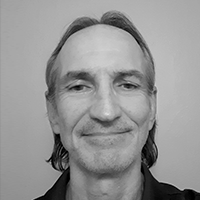There’s a Lab for That
Embry-Riddle offers full range of hands-on experience.





When it comes to providing the practical experience that gives graduates an edge in the job market, Embry-Riddle Aeronautical University stands apart.
Because no matter what type of skills students need – from wind tunnel testing to forensic science – Embry-Riddle is likely to have a lab for it.
This approach to hands-on learning gives students a unique opportunity to work on high-end projects and help conduct groundbreaking research during their undergraduate studies, a benefit few other schools can offer.
And it’s not just experience that students will gain in our labs.
“The highlight of working in the Rocket Development Lab is being with so many like-minded people who are so eager to learn concepts past their schoolwork to get projects done correctly,” said Zoe E. Brand, a Mechanical Engineering student who serves as vice president of Rocket Development Lab and who also earned a prestigious Brooke Owens Fellowship in 2021.
Embry-Riddle’s practical education expertise is rooted in its legacy as one of the nation’s foremost pilot training schools, with that experience fueling the development of dozens of specialized labs that serve students and faculty in nearly every discipline.
The formidable lineup of learning opportunities includes the world’s best collegiate crash lab, which teaches the basics of aircraft accident investigation, a “hacker lab” where students learn to fend off cyberattacks and online virtual labs that include aerial robotics.
All of the labs are outfitted with the latest equipment and faithfully reflect industry standards, which gives Embry-Riddle students another advantage when they head out to start their careers. Whether the focus is on communication systems or chemistry, students work with cutting edge tools as they develop leading edge skills.
Our labs also serve as vital research hubs for faculty, staff and undergrad and grad students examining everything from new ways to use polymers in aerospace settings to the development of alternative propulsion systems for aircraft or the finer points of laser micromachinings.
“I’m really proud of our lab,” Alexis Smith, a senior civil engineering student with a focus in environmental engineering who is investigating atmospheric pollution in the new Sustainability and Environmental Engineering Lab, which opened in 2020.
These additional avenues to build practical skills help highlight another aspect of the Embry-Riddle advantage, which also features expert faculty members who have the vast industry connections — vital when it comes to internships or initial career opportunities — and a global network of more than 140,000 alumni actively working in industries around the world.
Ready to discover something? Whatever passion you want to pursue, Embry-Riddle has a lab for that.


 by
by
